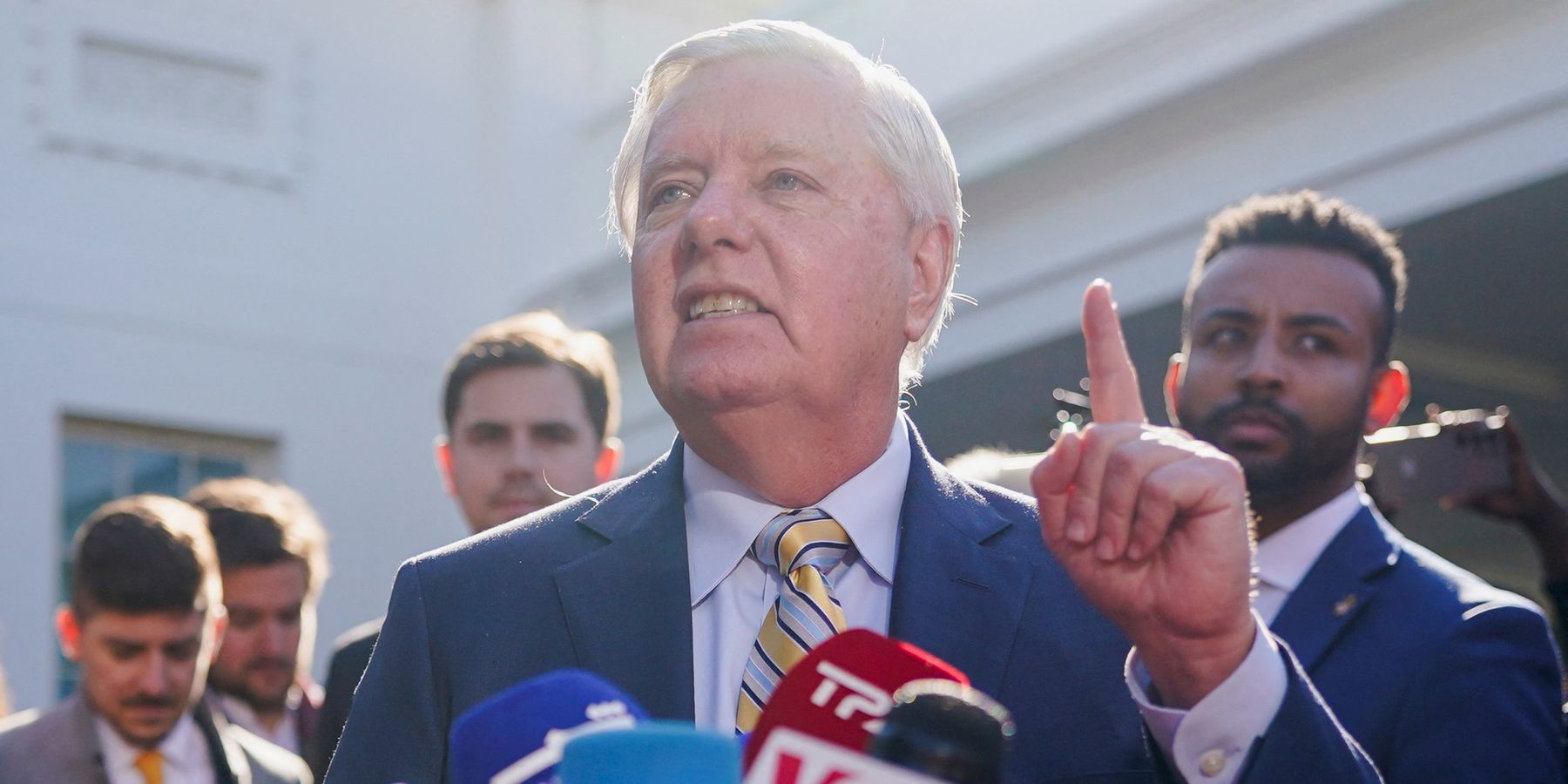While tariffs make wars more likely, embargoes make wars difficult to avoid. Senator Lindsey Graham’s Sanctioning Russia Act calls for 500% tariffs on dozens of countries and essentially amounts to an embargo.
If this bill were to pass, it would cause an economic calamity on a scale never before seen in our country.
In its insistence that Moscow be a permanent enemy of the United States, the foreign policy establishment is pushing to impose more punitive measures on Russia should they refuse to negotiate a peace deal with Ukraine. The Sanctioning Russia Act seeks to inflict a series of additional sanctions and prohibitions of various financial transactions with Russia.
Yet, the most consequential and outright reckless provision of the bill seeks to enact minimum 500% secondary tariffs on countries who trade with Russia. Though the bill seeks to punish Russia, it will also punish America’s allies and even the United States itself. The global policemen in Washington are so incredulous that they cannot force peace between Russia and Ukraine that they formally abandoned even the pretense that their meddling is in America’s interests.
Specifically, the bill directs the President to impose 500% tariffs on all goods and services imported into the United States from a country that “knowingly sells, supplies, transfers, or purchases oil, uranium, natural gas, petroleum products, or petrochemical products that originated in the Russian Federation.” This tariff is subject to increase by no less than 500% every 90 days, meaning some countries could face 1,000% tariffs in just a few months.
In response to its invasion of Ukraine, the United States and its allies imposed some 16,000 sanctions, froze Russia’s sovereign assets, and implemented a series of severe financial restrictions. As the war wages in its fourth bloody year, it is safe to say that these measures unequivocally failed to alter Moscow’s war aims.
This inevitable failure was, of course, easily predictable to anyone who honestly assessed Russia’s motives for launching the war. The Kremlin views maintaining influence over Ukraine as necessary to prevent Ukraine’s alignment with the West, particularly preventing its efforts to join NATO, as a core national security interest. Countries will go to great lengths to secure what they deem are core interests, and given the tremendous amount of blood and treasure it has expended, Russia is no different.
Therefore, one should not expect additional punitive measures to alter Moscow’s strategic calculus in any meaningful manner.
Dozens of countries continue to trade with Russia directly and indirectly including key strategic allies and even the United States itself. In 2024, the United States imported $624 million worth of enriched uranium and plutonium directly from Russia. The United States, like many other countries, has also seen Russian crude oil imported from third countries who buy Russian oil and then sell it abroad. Are the proponents of this legislation honestly seeking to require the President to enact a 500 % tariff on ourselves?
What other countries would this bill implicate? According to the UN Comtrade Database, Israel imported $10.6 million in plastics from Russia in 2024. Do supporters of this bill really want to slap a 500% tariff on Israel while it is engaged in a multifront war? Last year, Taiwan, who many consider to be key to the U.S. defense posture in Asia, was Russia’s top consumer of naphtha — a petrochemical used in the production of plastics. Does anyone truly think that imposing a 500% tariff on all Taiwanese goods entering the United States will put them in a better position to defend themselves from potential Chinese aggression?
Likewise, Japan, another key ally in Asia, imported some $3.6 million worth of liquified natural gas (LNG) and hundreds of thousands of dollars worth of plastics and rubber from Russia in 2024.
Our allies in Europe would also be severely affected. Despite strong rhetoric condemning Moscow, imports of Russian LNG into the European Union (EU) rose by 19.3% in 2024. In the first 15 days of 2025, EU countries imported over 837,000 metric tons of Russian LNG, with Germany, France, Belgium, and Spain being key importers. According to Trade Data Monitor, Ukraine itself is estimated to have imported over $200,000 in petroleum products from Russia in 2024, and up until January 1, 2025, Ukraine was facilitating the transfer of Russian gas to Europe via its trans-national pipelines.
The country that will be harmed the most under this legislation will be the United States, both economically and strategically. If implemented, these tariffs would make U.S. trade with most of the world untenable, raise prices for American consumers, and risk further weakening the dollar.
It would also degrade our relations with several important allies at a time when geopolitics is increasingly volatile. The United States should be leveraging its allies now more than ever as we face a myriad of pressing priorities, including an unsustainable $36 trillion national debt. Instead, this misguided legislation would drive many of our allies away and into the arms of other trading partners, including China. The bill certainly will not do anything to convince Russia to sue for peace in Ukraine. Rest assured that Moscow would welcome the United States sowing further division with its key trading partners.
Never underestimate Washington’s ability to make things worse. The Sanctioning Russia Act of 2025 will cut off our nose to spite our face. Congress should reject this misguided bill and instead focus its efforts to advance realistic peace negotiations in Ukraine and pursue policies that advance America’s national interests
- Russia sanctions are stone cold leverage. Let's use it. ›
- Why US-led sanctions on Russia are a failure ›
- Should a Russia-Ukraine peace leave territorial control for later? | Responsible Statecraft ›
- Graham: Trump 'told me it’s time to move' on sanctions bill | Responsible Statecraft ›
- Diplomacy Watch: Trump changes tune, music to Zelensky’s ears | Responsible Statecraft ›
- Diplomacy Watch: US govt. throws cold water on impact of sanctions | Responsible Statecraft ›
















